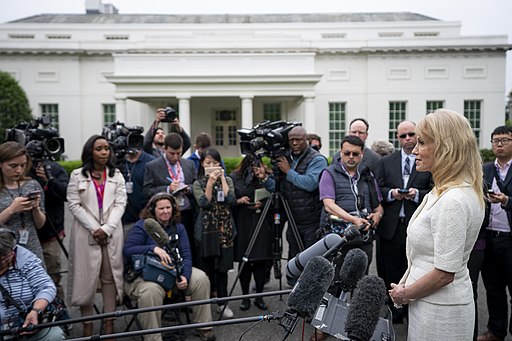No Question of Right or Wrong
— Techly



Some people simply won’t care, of course, and will remain interested only in what’s easiest and most convenient for them. This is not for them. Others who are concerned about voting with their dollars, however, should know there are ways to find alternatives to signing on with the big technology companies, and that informing themselves doesn’t have to suck up an inordinate amount of their time and energy. Currently there is almost no labeling on technology products and services such as there is on food for sale in supermarkets, informing consumers of organic and non-GMO options, and of nutritional content. There should be similarly easily apparent labels for technology, listing ratings from an impartial source, if such is possible, on a company’s treatment of workers, suppliers, and the environment. The companies are now required by law to enumerate the ways they use customer information, but that is for the most part buried in fine print legalese that few consumers bother to read.
In episode #1938, “Theresa Syndrome”, from the radio show Car Talk, the portion of the show relevant to this post starts at the 10:45 mark with a call from Brian in Harrisonville, Kentucky. Questions of ethics come up every day in everyone’s lives, and in this case as in many others, arguments of efficiency that mask motives of self-interest are all too common.
Until the technology industry catches up with at least the halting steps the food industry has taken to inform consumers about what they are buying and what kind of ethical or unethical behavior they in turn support with their purchases, it will remain up to individual consumers to inform themselves. Globalization has made it easy to hide the ugly details of technology manufacturing halfway around the world. Out of sight, out of mind. It’s not as if things were far better 100 years ago, though, because at that time for most Americans a sweatshop on New York City’s Lower East Side was as much on the other side of the world as a sweatshop in Bangladesh is today. Speed of travel and communications have changed the seeming size of the world, but sadly not the willingness of businesses and governments to exploit the less fortunate, and of the more fortunate to turn a blind eye.
— Techly 
Editor’s note: Bonus points to readers who note advertising on this site for the products of one of the companies criticized in this post. It’s hard, maybe impossible, to exist in the modern world without some compromises, and like everybody else, writers have to eat. With a little effort and attentiveness, people do what they can to make the world a better place, but no one is without faults, and as Joe E. Brown said at the end of the movie Some Like It Hot, “Well, nobody’s perfect.”
Of course White House counselor Kellyanne Conway knows perfectly well there are no criminal penalties for violating the Hatch Act since it is purely an administrative prohibition. Government employees can be reprimanded or fired for violating the Hatch Act, or assessed a fine up to $1,000. There are other disciplinary penalties that the Office of the Special Counsel (OSC) can recommend as well, but none of them include filing criminal charges. The difficulty in disciplining Ms. Conway, however, is that the Hatch Act as currently constituted only allows the OSC to recommend to the president that he fire her, and can do nothing on its own to remove her because she is a political appointee. As applied to Ms. Conway then, the Hatch Act is toothless as long as the president backs her, and she is also very well aware of that fact.

The people staffing the current presidential administration have little regard for the rule of law as applied to them, and certainly not for an Act dealing with professional ethics that has no legal bite to it. This attitude and tone is set by the current president, for whom laws and ethics and the truth are malleable when applied to him and those he likes. Past presidents and their staffs had at least some little sense of shame, which is apparently what Congress hoped for in 1939 when they passed the original Hatch Act in 1939. Congress must have hoped for voluntary compliance under the pressure of public shame and political calculations. They did not foresee an administration that behaved utterly without shame and invented alternative facts.
Michelle Wolf comments on Kellyanne Conway in this clip from a February 2017 episode of The Daily Show, hosted by Trevor Noah. Warning: foul language.
The worst actors in the current administration, such as Kellyanne Conway, have nothing but contempt for any rules that cannot threaten them with prison if they don’t comply. She and the president she serves are going to do the right thing only when it suits them to do so, not if it only serves the interests of the country. Recently some Democrats in Congress have put forward a bill to amend the Hatch Act in order to redress the lack of enforcement power of the OSC when pursuing complaints against senior political appointees. If the bill passes, presidents will no longer be sole arbiters in such cases. If the bill passes and Kellyanne Conway continues violating the Hatch Act by advocating partisan political issues in her official capacity, she still won’t end up in jail, but she and her boss may have to pay some real political consequences, which is the only thing they understand . . . maybe.
— Vita 
In any discussion of medical science’s ability to increase the human life span, people seldom question the desirability of a longer life. Certainly the doctors and scientists don’t seem to question it. The assumption always is that if people were offered the possibility of living past one hundred in reasonably good health, they would grab at it eagerly. Why?
Gillian Welch and David Rawlings perform “I’ll Fly Away” on Austin City Limits on PBS in 2011.
Increasing life span is a different ethical matter for medical science than improving health for the time we generally have been allotted. Experimenting on poor creatures who likely have no interest in prolonging the lives of their tormentors, scientists are on the brink of breakthroughs that will allow people to live the length of two ordinary life spans. What for?

